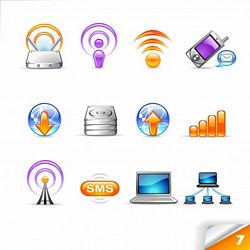Wireless internet security is an important facet of identity theft protection and prevention.
Wireless networks, while convenient and versatile, are vulnerable to various security threats that can compromise the privacy, integrity, and availability of our data.
As cybercriminals become increasingly sophisticated, it is crucial for individuals, businesses, and organizations to take proactive measures to protect their wireless networks and safeguard sensitive information.
This guide aims to shed light on the importance of wireless internet security and provide practical insights into enhancing the security of your wireless network. We will explore the common vulnerabilities and risks associated with wireless networks, discuss essential security measures, and delve into best practices for securing your wireless internet connection.
By the end, you will have a solid understanding of the steps you can take to fortify your wireless network against potential threats, ensuring a safer and more secure online experience.
In order to understand how to protect your wireless connection, you should be familiar with network security and what programs are available to secure your wireless connection.

Types of Wireless Connections
- Many people use WLAN, or wireless local area network to connect to the internet. Since it is a local area network, anybody in the area of the signal can use it, and wireless internet security is a key issue. This creates an obvious danger for identity theft.
- WIPS (wireless intrusion prevention system) is a tool for networks that looks for unauthorized access points and acts to prevent intrusion from those access points. This system consists of sensors, a server, and a console. This is typically used in a WLAN environment and operates from inside the private network as opposed to being accessible from the internet.
- A WEP (wired equivalent privacy) is an encryption program that makes it difficult for unauthorized users to access your network. DES, VPN, and WPA are more advanced versions of wireless security.
- According to many wireless internet security experts, WPA (wi-fi-protected access) is superior to WEP because it is a more recent technology than WEP and is more advanced. WPA uses enhanced user authentication in combination with EAP (Extensible Authentication Protocol). This greatly reduces the chance of attacks from hackers and identity thieves.
- A VPN (virtual private network) can add protection in a wireless environment. This works by allowing remote access to private, secure networks and includes security features. VPN is often used by corporations and universities to provide safe access for employees and students at a lower cost than wireless metropolitan access networks (WMAN) or wireless wide area networks (WWAN)..
Other Precautions
As always, some of the best wireless security comes from using good judgment when it comes to surfing the internet – don’t go to suspicious-looking sites or enter your information on unsecured sites (look for the padlock symbol). Don’t answer suspicious emails
Putting anti-virus and anti-spyware software on your PC or laptop is also key to keeping unauthorized data-collecting software off of your computer. If you have a laptop, consider purchasing a security cable to keep your information safe.
Don’t use shared computers for logging on to personal data (i.e., bank accounts and other online accounts and information). And no matter what type of wireless network you utilize, ensure that adequate security measures have been taken to protect you and your privacy.















